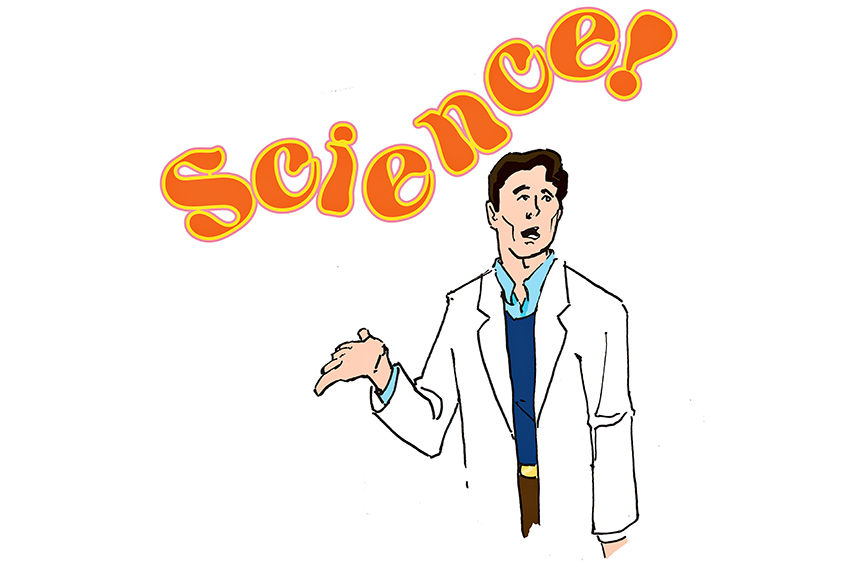Scientific research papers and studies are produced every day by UT scientists, but communicating that information can be challenging. Luckily, STEM students have resources to help.
Anthony Dudo, advertising and public relations associate professor, said the gap in understanding between scientists and the public can affect policy. According to NASA, 97 percent of scientists agree global climate change is likely man-made, but Pew Research reported more than half of Americans disagree.
“We live in a democracy,” Dudo said. “Many people would also argue that it’s important that our citizens have a stake in and have involvement with and be engaged in STEM, the way that it innovates, the way that it evolves and the way that policies are set relative to it.”
Dudo joined a committee within the Moody College of Communication three years ago to create a science communication minor to equip future scientists with better communication skills. Now with more than a hundred students signing up for its introductory course each semester, the program teaches students to communicate strategically, focusing on communication goals and understanding their audience.
“One of the things we found is that, for folks in the scientific community, those little nuggets of baseline information on communication are not widespread,” Dudo said. “So one of the biggest things we can do to help that situation is we can parle the baseline knowledge we have, lift that up and drop that into the STEM ecosystem.”
Additionally, the UT Science Communication Interest Group sponsors an annual Science in Plain English competition, which was held Wednesday. The competition helps students practice communication skills by having them explain their research in front of judges and an audience.
The competition judges students based on brevity, clarity, word choice and speaking style while they explain the details of their research.
“Most of the science education about communication has traditionally been about communicating to other researchers,” said Roxanne Bogucka, founder of the interest group. “This is an opportunity to practice talking to people who are not in your discipline, who are not experts in your area.”
The opportunity to practice is important to students such as biomedical engineering junior Emily Yang, who won this year’s competition.
“This was a great way for me to practice,” Yang said. “That’s how I tried to approach it coming in. Winning this gives me a lot of confidence that maybe I can use the creativity that I have or the way I like to describe things to help get rid of that barrier between this abstract field of science and make it applicable to the common person.”
Better science communication is not just to the benefit of individual scientists. Dudo said bridging the communication gap between scientists and the public is important to the future of STEM because public feedback impacts research and innovation.
“The greater the engagement, the greater the communication lines between the knowledge generating part of STEM and the different players in society, whether they be policy makers or ordinary citizens, ultimately the better,” Dudo said.




















